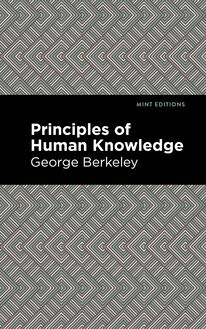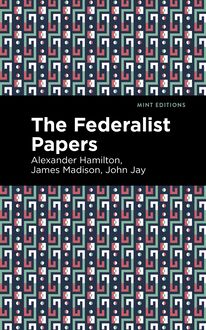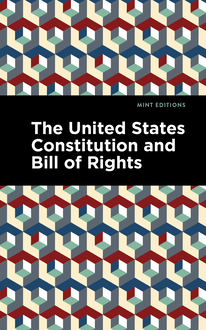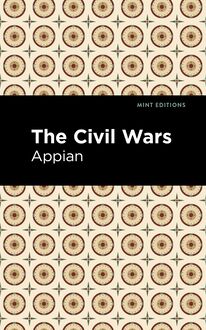-
 Univers
Univers
-
 Ebooks
Ebooks
-
 Livres audio
Livres audio
-
 Presse
Presse
-
 Podcasts
Podcasts
-
 BD
BD
-
 Documents
Documents
-
- Cours
- Révisions
- Ressources pédagogiques
- Sciences de l’éducation
- Manuels scolaires
- Langues
- Travaux de classe
- Annales de BEP
- Etudes supérieures
- Maternelle et primaire
- Fiches de lecture
- Orientation scolaire
- Méthodologie
- Corrigés de devoir
- Annales d’examens et concours
- Annales du bac
- Annales du brevet
- Rapports de stage
La lecture à portée de main
Vous pourrez modifier la taille du texte de cet ouvrage
Découvre YouScribe en t'inscrivant gratuitement
Je m'inscrisDécouvre YouScribe en t'inscrivant gratuitement
Je m'inscrisEn savoir plus
Vous pourrez modifier la taille du texte de cet ouvrage
En savoir plus

Description
The Reynolds Pamphlet (1797) is an essay by Alexander Hamilton. Written while Hamilton was serving as Secretary of the Treasury, the Pamphlet was intended as a defense against accusations that Hamilton had conspired with James Reynolds to misuse funds meant to cover unpaid wages to Revolutionary War veterans. Admitting to an affair with Maria, Reynolds’ wife, Hamilton claims that the accusation is nothing more than an attempt at blackmail. This revelation not only endangered Hamilton’s career as a public figure, but constituted perhaps the earliest sex scandal in American history.
“The bare perusal of the letters from Reynolds and his wife is sufficient to convince my greatest enemy that there is nothing worse in the affair than an irregular and indelicate amour. For this, I bow to the just censure which it merits. I have paid pretty severely for the folly and can never recollect it without disgust and self condemnation. It might seem affectation to say more.”
Accused of corruption in his role as Secretary of the Treasury, Alexander Hamilton was forced to confess his adultery, bringing shame to himself as a married man and supposedly honorable public figure, yet saving his political career in the process. Looking back on his affair with Maria Reynolds from a distance of five years, Hamilton expresses regret for his foolishness, yet wholeheartedly denies her husband’s accusation that he had been involved in his scheme to misuse government funds. Perhaps the first sex scandal in American history, the Reynolds affair sent shockwaves throughout the burgeoning republic, leaving many to question the motives and character of their leaders for the first time, though certainly not the last.
With a beautifully designed cover and professionally typeset manuscript, this edition of Alexander Hamilton’s Reynolds Pamphlet is a classic of American literature reimagined for modern readers.
Sujets
Informations
| Publié par | Mint Editions |
| Date de parution | 11 mai 2021 |
| Nombre de lectures | 0 |
| EAN13 | 9781513297118 |
| Langue | English |
| Poids de l'ouvrage | 4 Mo |
Informations légales : prix de location à la page 0,0250€. Cette information est donnée uniquement à titre indicatif conformément à la législation en vigueur.
Extrait
Reynolds Pamphlet
Alexander Hamilton
Reynolds Pamphlet was first published in 1797.
This edition published by Mint Editions 2021.
ISBN 9781513295619 | E-ISBN 9781513297118
Published by Mint Editions®
minteditionbooks.com
Publishing Director: Jennifer Newens
Design & Production: Rachel Lopez Metzger
Project Manager: Micaela Clark
Typesetting: Westchester Publishing Services
C ONTENTS Begin Reading
The spirit of jacobinism, if not entirely a new spirit, has at least been cloathed with a more gigantic body and armed with more powerful weapons than it ever before possessed. It is perhaps not too much to say, that it threatens more extensive and complicated mischiefs to the world than have hitherto flowed from the three great scourges of mankind, W AR, P ESTILENCE and F AMINE . To what point it will ultimately lead society, it is impossible for human foresight to pronounce; but there is just ground to apprehend that its progress may be marked with calamities of which the dreadful incidents of the French revolution afford a very faint image. Incessantly busied in undermining all the props of public security and private happiness, it seems to threaten the political and moral world with a complete overthrow.
A principal engine, by which this spirit endeavours to accomplish its purposes is that of calumny. It is essential to its success that the influence of men of upright principles, disposed and able to resist its enterprises, shall be at all events destroyed. Not content with traducing their best efforts for the public good, with misrepresenting their purest motives, with inferring criminality from actions innocent or laudable, the most direct falshoods are invented and propagated, with undaunted effrontery and unrelenting perseverance. Lies often detected and refuted are still revived and repeated, in the hope that the refutation may have been forgotten or that the frequency and boldness of accusation may supply the place of truth and proof. The most profligate men are encouraged, probably bribed, certainly with patronage if not with money, to become informers and accusers. And when tales, which their characters alone ought to discredit, are refuted by evidence and facts which oblige the patrons of them to abandon their support, they still continue in corroding whispers to wear away the reputations which they could not directly subvert. If, luckily for the conspirators against honest fame, any little foible or folly can be traced out in one, whom they desire to persecute, it becomes at once in their hands a two-edged sword, by which to wound the public character and stab the private felicity of the person. With such men, nothing is sacred. Even the peace of an unoffending and amiable wife is a welcome repast to their insatiate fury against the husband.
In the gratification of this baleful spirit, we not only hear the jacobin news-papers continually ring with odious insinuations and charges against many of our most virtuous citizens; but, not satisfied with this, a measure new in this country has been lately adopted to give greater efficacy to the system of defamation—periodical pamphlets issue from the same presses, full freighted with misrepresentation and falshood, artfully calculated to hold up the opponents of the F ACTION to the jealousy and distrust of the present generation and if possible, to transmit their names with dishonor to posterity. Even the great and multiplied services, the tried and rarely equalled virtues of a W ASHINGTON , can secure no exemption.
How then can I, with pretensions every way inferior expect to escape? And if truly this be, as every appearance indicates, a conspiracy of vice against virtue, ought I not rather to be flattered, that I have been so long and so peculiarly an object of persecution? Ought I to regret, if there be any thing about me, so formidable to the Faction as to have made me worthy to be distinguished by the plentytude of its rancour and venom?
It is certain that I have had a pretty copious experience of its malignity. For the honor of human nature, it is to be hoped that the examples are not numerous of men so greatly calumniated and persecuted, as I have been, with so little cause.
I dare appeal to my immediate fellow citizens of whatever political party for the truth of the assertion, that no man ever carried into public life a more unblemished pecuniary reputation, than that with which I undertook the office of Secretary of the Treasury; a character marked by an indifference to the acquisition of property rather than an avidity for it.
With such a character, however natural it was to expect criticism and opposition, as to the political principles which I might manifest or be supposed to entertain, as to the wisdom or expediency of the plans, which I might propose, or as to the skill, care or diligence with which the business of my department might be executed, it was not natural to expect nor did I expect that my fidelity or integrity in a pecuniary sense would ever be called in question.
But on his head a mortifying disappointment has been experienced. Without the slightest foundation, I have been repeatedly held up to the suspicions of the world as a man directed in his administration by the most sordid views; who did not scruple to sacrifice the public to his private interest, his duty and honor to the sinister accumulation of wealth.
Merely because I retained an opinion once common to me and the most influencial of those who opposed me, That the public debt ought to be provided for on the basis of the contract upon which it was created , I have been wickedly accused with wantonly increasing the public burthen many millions, in order to promote a stockjobbing interest of myself and friends.
Merely because a member of the House of Representatives entertained a different idea from me, as to the legal effect of appropriation laws, and did not understand accounts, I was exposed to the imputation of having committed a deliberate and criminal violation of the laws and to the suspicion of being a defaulter for millions; so as to have been driven to the painful necessity of calling for a formal and solemn inquiry.
The inquiry took place. It was conducted by a committee of fifteen members of the House of Representatives—a majority of them either my decided political enemies or inclined against me, some of them the most active and intelligent of my opponents, without a single man, who being known to be friendly to me, possessed also such knowledge and experience of public affairs as would enable him to counteract injurious intrigues. Mr. Giles of Virginia who had commenced the attack was of the committee. 1
The officers and books of the treasury were examined. The transactions between the several banks and the treasury were scrutinized. Even my private accounts with those institutions were laid open to the committee; and every possible facility given to the inquiry. The result was a complete demonstration that the suspicions which had been entertained were groundless.
Those which had taken the fastest hold were, that the public monies had been made subservient to loans, discounts and accommodations to myself and friends. The committee in reference to this point reported thus: “It appears from the affidavits of the Cashier and several officers of the bank of the United States and several of the directors, the Cashier, and other officers of the bank of NewYork, that the Secretary of the Treasury never has either directly or indirectly , for himself or any other person, procured any discount or credit from either of the said banks upon the basis of any public monies which at any time have been deposited therein under his direction: And the committee are satisfied , that no monies of the United States, whether before or after they have passed to the credit of the Treasurer have ever been directly or indirectly used for or applied to any purposes but those of the government, except so far as all monies deposited in a bank are concerned in the general operations thereof.” 2
The report, which I have always understood was unanimous, contains in other respects, with considerable detail the materials of a complete exculpation. My enemies, finding no handle for their malice, abandoned the pursuit.
Yet unwilling to leave any ambiguity upon the point, when I determined to resign my office, I gave early previous notice of it to the House of Representatives, for the declared purpose of affording an opportunity for legislative crimination, if any ground for it had been discovered. 3 Not the least step towards it was taken. From which I have a right to infer the universal conviction of the House, that no cause existed, and to consider the result as a complete vindication.
On another occasion, a worthless man of the name of Fraunces found encouragement to bring forward to the House of Representatives a formal charge against me of unfaithful conduct in office. 4
-
 Univers
Univers
-
 Ebooks
Ebooks
-
 Livres audio
Livres audio
-
 Presse
Presse
-
 Podcasts
Podcasts
-
 BD
BD
-
 Documents
Documents
-
Jeunesse
-
Littérature
-
Ressources professionnelles
-
Santé et bien-être
-
Savoirs
-
Education
-
Loisirs et hobbies
-
Art, musique et cinéma
-
Actualité et débat de société
-
Jeunesse
-
Littérature
-
Ressources professionnelles
-
Santé et bien-être
-
Savoirs
-
Education
-
Loisirs et hobbies
-
Art, musique et cinéma
-
Actualité et débat de société
-
Actualités
-
Lifestyle
-
Presse jeunesse
-
Presse professionnelle
-
Pratique
-
Presse sportive
-
Presse internationale
-
Culture & Médias
-
Action et Aventures
-
Science-fiction et Fantasy
-
Société
-
Jeunesse
-
Littérature
-
Ressources professionnelles
-
Santé et bien-être
-
Savoirs
-
Education
-
Loisirs et hobbies
-
Art, musique et cinéma
-
Actualité et débat de société
- Cours
- Révisions
- Ressources pédagogiques
- Sciences de l’éducation
- Manuels scolaires
- Langues
- Travaux de classe
- Annales de BEP
- Etudes supérieures
- Maternelle et primaire
- Fiches de lecture
- Orientation scolaire
- Méthodologie
- Corrigés de devoir
- Annales d’examens et concours
- Annales du bac
- Annales du brevet
- Rapports de stage














